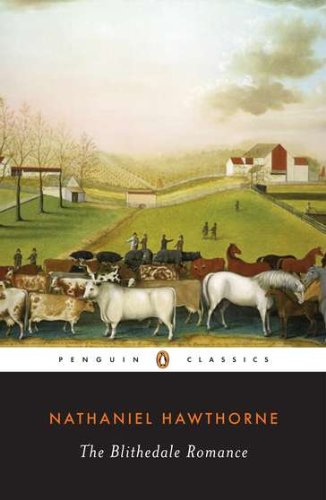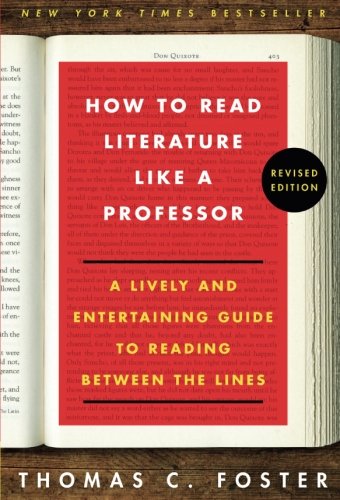Book Nerd: Library Chicken Weekly Scoreboard (9.26.17)
Welcome to the weekly round-up of what the BookNerd is reading and how many points I scored (or lost) in Library Chicken. To recap, you get a point for returning a library book that you’ve read, you lose a point for returning a book unread, and while returning a book past the due date is technically legal, you do lose half a point. If you want to play along, leave your score in the comments!
Last week was big for Library Chicken HQ: after an unexpected hurricane delay, we had our first session of Middle School Monday classes at the homeschool hybrid academy, which means that I need to stop having so much fun reading whatever I want and get back to the list of books we’ll be tackling in class!
The Dark Forest by Cixin Liu, translated by Joel Martinsen
Sequel to The Three-Body Problem. This science fiction novel (translated from the Chinese) imagines worldwide responses to the threat of an alien invasion that is still a couple of centuries away. I haven’t read much Chinese sf and I was fascinated by the differences in tone; there’s a sort of fatalistic stoicism that I haven’t generally encountered in American sf. Is that a cultural difference? Unique to this author? Unique to this series? Clearly I need to read more Chinese science fiction to find out (as soon as I finish the third book in this trilogy). (LC Score: +1)
[Note from Amy: I recently read Where the Stars Rise: Asian Science Fiction and Fantasy, an anthology of sci-fi short stories, and I totally picked up the same note of fatalistic stoicism in every one of the stories. Anec-data does not equal truth, but still—we definitely picked up the same vibe.]
The Icarus Girl by Helen Oyeyemi
Oh, man, I love Oyeyemi so much. This is her first novel, written when she was eighteen years old (EIGHTEEN YEARS OLD), and I couldn’t put it down. Jess, our eight-year-old protagonist, picks up an unusual friend (named TillyTilly) when she is in Nigeria, visiting her mother’s family. There are themes here that Oyeyemi will echo later on in her excellent ghost story, White is For Witching (that I now want to reread), and as is typical, she leaves certain plot elements vague and unresolved. And again, the writing is so good I don’t even mind about the unresolved bits. EIGHTEEN YEARS OLD, people. (LC Score: +1)
Save the Date: The Occasional Mortifications of a Serial Wedding Guest by Jen Doll
I first encountered Doll as a blogger and internet essayist on the late and very much lamented website the-toast.net, and I’ll eagerly read anyone who was published on The Toast. This is a memoir built around the many weddings Doll has attended. It’s a very cute idea, but the structure is a bit flimsy, especially as she tries to turn every anecdote into a deep meaningful moment. She has more wedding misadventures than most—as she jokes at one point, the memoir could be subtitled something like “Jen Doll Had a Drinking Problem There For a While”, but by the end of the book I actually found it more concerning than funny. (LC Score: +1)
Paradise Now: The Story of American Utopianism by Chris Jennings
New Harmony, Brook Farm, Oneida, the Shakers, and the Icarians: Jennings introduces us to a range of American communal societies in this entertaining overview. It turns out (who knew?) that the type of people who found these utopian communities are fascinating. Sometimes a bit terrifying, but always fascinating. I would like to immediately request full and detailed modern biographies of Robert Owen (of New Harmony), George Ripley (of Brook Farm), and MOST IMPORTANTLY, Frances (Fanny) Wright, founder of Nashoba. I need to know MORE. (LC Score: +1)
The Blithedale Romance by Nathaniel Hawthorne
The Marble Faun by Nathaniel Hawthorne
As I’ve mentioned before, Hawthorne was an early resident of Brook Farm, though he barely lasted six months. The Blithedale Romance, set at a suspiciously familiar utopian community known as Blithedale, is supposed to be his satire of that time, but he has little to say about the community itself. Instead, he gives us a romantic triangle with one man and two women: a Remarkable Woman With a Sketchy Past, and a Pure-Hearted Innocent. Unsurprisingly, the Remarkable Woman, though brave, intelligent, and beautiful, is brought low by her unconventionality, almost destroying the Pure-Hearted Innocent in the process. The Marble Faun adds an additional character (a romantic rectangle?) but keeps the Remarkable Woman vs. Pure-Hearted Innocent dynamic, stretching out the narrative with a large helping of anti-Italian and anti-Catholic bigotry. As you might suspect, I was not a huge fan of The Marble Faun, especially the coy ending where Hawthorne declines to explain what just happened, much less why (which also annoyed the readers and reviewers of the time, forcing him to add a grudgingly explanatory afterword to later editions). (LC Score: +1, finished the Library of American collection!)
The Age of Miracles by Karen Thompson Walker
Reread for Apocalyptic Lit class. The Age of Miracles is the first novel I assigned to my Apocalyptic Lit students, even though it’s actually a coming of age story, cleverly set during the (possible) end of the world. (I’m happy to report that it was a hit.) (LC Score: 0, off my own shelves)
How to Read Literature Like a Professor by Thomas C. Foster
Amy recommended this book to me and I’m so glad I read it. Foster talks about literary analysis in terms of memory (or intertextuality, aka how texts influence each other), patterns, and symbols, providing a handy and entertaining cheat guide for students of literature. Moral: Amy is always right and should probably just be giving me a to-read list each week. (LC Score: 0, got my own copy so I can pass it along to the high schoolers in the family)
[Note from Amy: Ha! Between this and the Faulkner I might be able to retire from book recommending in a blaze of glory.]
Library Chicken Score for 9/26/17: 5
Running Score: 105
On the to-read/still-reading stack for next week
- The Opposite House by Helen Oyeyemi (had to check this one out AGAIN)
- Death’s End by Cixin Liu (final book in the trilogy)
- Brat Farrar by Josephine Tey (the only Tey novel I have left to read <sniff>)
- Hawthorne: A Life by Brenda Wineapple (I will enjoy judging Nathaniel after reading all those novels)













SUZANNE REZELMAN is home | school | life magazine’s Book Nerd. Subscribe to home/school/life to read her brilliant book recommendations and literary musings every issue. Your library list will thank you.